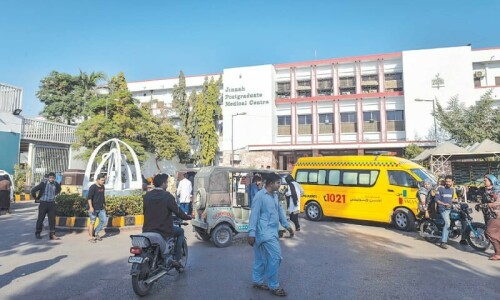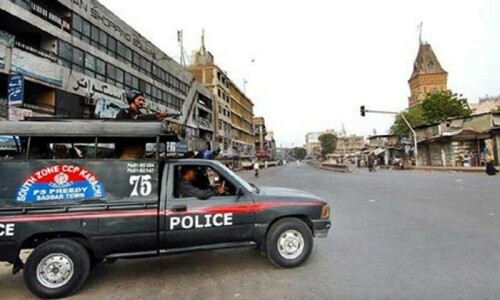NOT all progressives are created equal!
It is a common misconception that all progressive writers and intellectuals were against the idea of Pakistan and they have been opposing it till today. Since progressives have a different outlook on religion, it is also presumed that they generally stand on the other side of the line that divides believers and non-believers.
Indeed there have been many such progressives and still many more have their reservations against the very idea of creating a country on the basis of religiosity in the subcontinent. But, at least, Prof Fateh Muhammad Malik can be cited as an exception, though there are many others, too, who are progressive and staunch Pakistani at the same time. Prof Malik has been writing for long with a peculiar point of view on issues related to Pakistan’s history, its ideology and Pakistani literature. He relishes the popular poetry of Sufis and firmly believes that the long history of Sufi philosophy as propounded in our languages — in Urdu and other Pakistani languages — has a close link with our cultural identity as well as our national political stance. In several of his writings, Malik has been able to pinpoint the political resistance and literary and/or Sufi motifs that have been going hand in hand for the last several centuries.
“The Muslim community in the subcontinent had to pass through two critical junctures: first was the extremely tormenting period of ‘Deen-i-Ilahi’, or Mughal Emperor Akber’s newfangled religion; and the second was the era of struggle for Pakistan against the British tyranny,” writes Prof Malik in his new book Pakistani Adab Aur Vaardaat-i-Ishq-o-Junoon. The title, used as double entendre to convey the concept of spiritual love and political commitment as well, can roughly be translated as ‘Pakistani literature and the arcane experience of all-consuming love’.
A collection of Malik’s articles published mostly in Al-Hamra, an Urdu literary monthly published from Lahore, the book appears to be a compendium of essays on some Sufis, writers, poets and a few literary works, but appearances can be very deceptive: in fact, Malik Sahib has, in his usual style, subtly inserted some ideas and questions that are indispensable to our national ideology. These pieces underscore the struggle for establishing and protecting our identity over the centuries. The notions and values that Prof Malik stresses are the ones that underpin our national narrative.
The first phase of our historical struggle was Hazrat Mujaddid Alf-i-Sani’s political moves based on an ideology, disapproving the incorrect explication of the Sufi philosophy of ‘Vahdat-ul-Vujood’, or oneness of being, that had resulted in the misconstrued religious philosophy of Akber, says Malik in the preface to the book. The second phase came when Sir Syed Ahmed Khan raised the issue of several nations coexisting in the Indo-Pak subcontinent in the wake of the establishment of Indian National Congress, he adds.
The theme that binds all these articles together is that during the centuries-long struggle our Sufis, writers and poets have been actively participating in the process of preserving and protecting our national and cultural identity, which ultimately culminated in the creation of Pakistan. The ideological differences between those who believe in a separate Muslim identity and those who do not can be traced through this book.
These articles underline the political and cultural notions concealed under the surface of literary ideas, often expressed by some great Sufis — such as Sheikh Ahmed Sirhindi, popularly known as Hazrat Mujaddid Alf-i-Sani, Shah Hussain, Bahauddin Zakariya Multani, Sachchal Sarmast and Mian Muhammad Bakhsh — and some writers and poets, such as Allama Iqbal and Hasrat Mohani.
Some of the works with political and cultural ideas by latter-day writers and poets, such as Josh Maleehabadi, Habib Jalib, Masood Mufti, Waris Meer and Nabi Bakhsh Baloch have also been discussed in the book.
Additionally, the book has articles on some contemporary authors. Most of them are much junior to Fateh Muhammad Malik, who is 85 now. This positive gesture may redress, at least to a certain extent, the grievances of many of our junior and not-so-junior contemporaries who are often heard whining that the senior critics and scholars are always too engrossed with the classics or colossi to take notice of what we write.
Malik Sahib, as I know him, very keenly reads the contemporary writings penned by even new entrants and often appreciates the talent of the new voices as he believes that new blood is something that ensures the continuity of our literary and ideological traditions as well as our language.
The book is published by Lahore’s Sang-i-Meel Publications and carries 44 articles, some of them quite brief, but all of them offer some point to ponder.
Published in Dawn, July 19th, 2021













































Dear visitor, the comments section is undergoing an overhaul and will return soon.